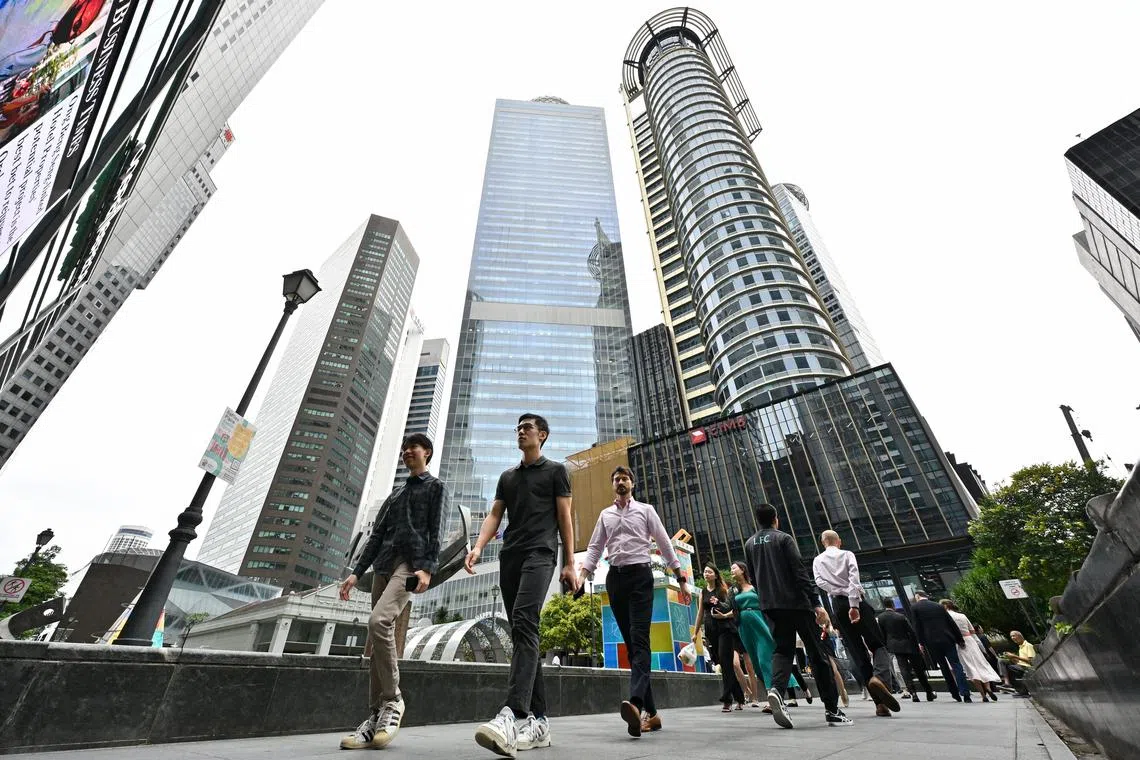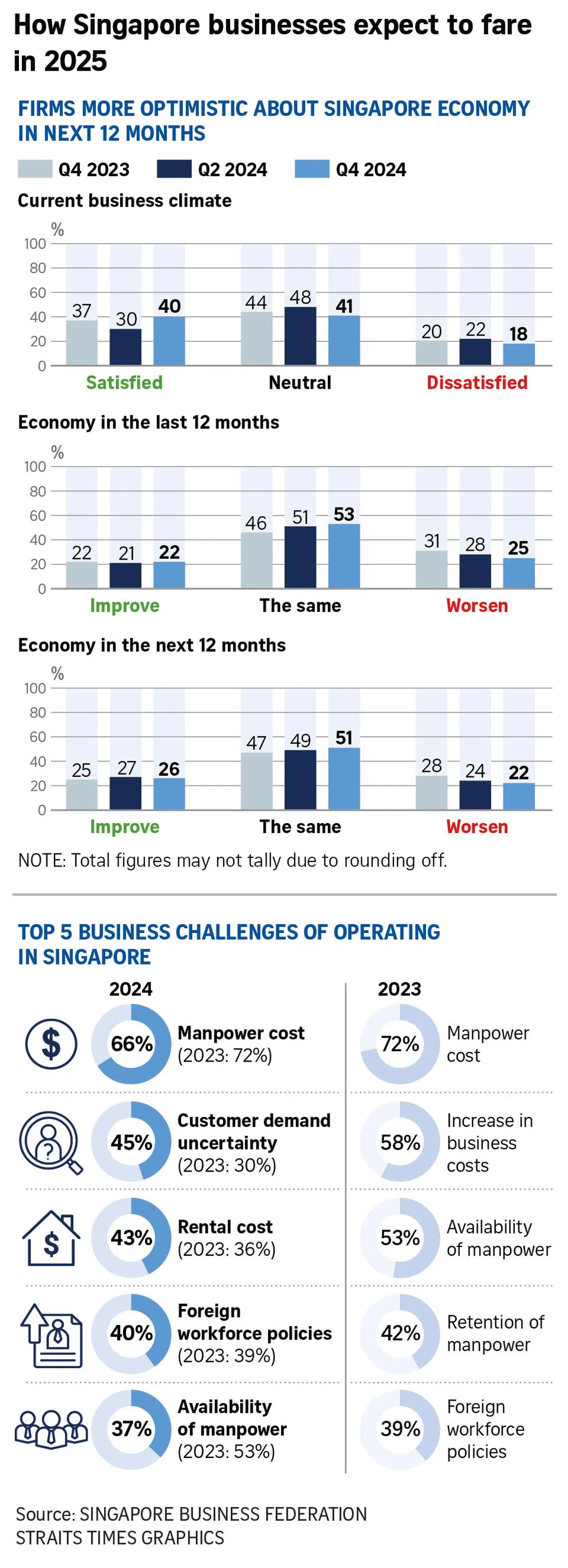Businesses more hopeful for 2025 but rising costs and demand uncertainty remain top challenges
Sign up now: Get ST's newsletters delivered to your inbox

Business sentiment picked up in the fourth quarter, with 40 per cent of companies satisfied with the current business climate.
PHOTO: ST FILE
Follow topic:
SINGAPORE - Businesses are increasingly confident about 2025, even as rising costs and demand uncertainty remain key concerns in the operating environment.
While the majority of companies feel the same, more businesses expect the economy to improve (26 per cent) from the fourth quarter of 2024 to the fourth quarter of 2025, compared with the same period a year ago (22 per cent).
Business sentiment picked up in the fourth quarter, with 40 per cent of companies satisfied with the current business climate, up from 30 per cent in the second quarter, the Singapore Business Federation’s (SBF) annual national business survey revealed.
The rest of the businesses maintained a neutral outlook (41 per cent) or are dissatisfied (18 per cent) with the current business climate.
Nearly one in three businesses (32 per cent) saw improvements in business conditions in the Asean region. This outperformed that of the global business climate, where the majority of businesses maintained a neutral outlook.
The survey, conducted from Oct 11 to Nov 11, 2024, interviewed 519 businesses across all key industries, of which 83 per cent are small and medium-sized enterprises and 17 per cent are large companies.
“As we move into 2025, it is encouraging to see a growth in optimism on business outlook, reflecting our businesses’ resilience, adaptability and preparedness for the future by investing in capability building,” said Mr Kok Ping Soon, chief executive of SBF.
“External factors such as increased trade tensions, potential tariff wars, and spillovers from regional conflicts are likely to dominate business concerns in the coming year,” said Mr Kok.
He noted that businesses were concerned about demand uncertainty arising from geopolitical developments even before the US presidential election results in November 2024.
Even though businesses were more optimistic about 2025, manpower costs were the top concern for 66 per cent of the companies surveyed.
To cope with cost pressures, 51 per cent of businesses established cost-saving measures, 41 per cent raised the prices of their products or services, and 30 per cent improved inventory management for efficiency.
Despite rising business costs, more than half of businesses have managed to sustain or improve profitability over the past year, or between the fourth quarter of 2023 and fourth quarter of 2024.
To future-proof their businesses over the next quarters, 36 per cent plan to focus on staff training, 37 per cent on new technologies and digitalisation, and 26 per cent on new investments.
The second most pressing concern was customer demand uncertainty at 45 per cent, up from 30 per cent in 2023.
Sectors such as hotels, restaurants and accommodations, retail trade and wholesale trade were the most impacted.
Rental costs were the third top challenge, with 43 per cent of businesses rating as such in 2024, up from 36 per cent in 2023.
Foreign workforce policies (40 per cent) and availability of manpower (37 per cent) remained key concerns, highlighting the ongoing strain on workforce-related issues.

Meanwhile, Singapore’s status as a global talent hub has waned, the survey showed.
The proportion of businesses rating the Republic as a highly attractive global talent hub from the fourth quarter of 2024 to the fourth quarter of 2025 declined to 41 per cent, from 43 per cent during the same period a year ago.
This was more significant among large companies, with the proportion declining to 47 per cent from the fourth quarter of 2024 to the fourth quarter of 2025, from 55 per cent during the same period a year ago.
“While rising business cost is a perennial concern which needs to be addressed, we are heartened that more companies are prepared to invest in people, technology and new businesses.
“Given our manpower constraints, we need to increase Singapore’s absorptive capacity of a complementary foreign workforce to maintain our attractiveness as a global talent hub,” Mr Kok said.
Companies indicated that Budget 2024 measures such as the corporate income tax rebate and SkillsFuture Level-Up Programme have helped mitigate rising costs, build strategic capabilities and more.
Businesses are seeking government support to help manage their financing needs (35 per cent), human capital development (34 per cent) and digitalisation for business transformation (33 per cent).
Their top three wishes for Budget 2025 are for schemes to address cost pressures (64 per cent), to attract and retain the local workforce (43 per cent), and address foreign manpower issues (41 per cent).
Alyssa Woo is assistant business editor at The Straits Times. She oversees coverage of the hospitality and retail sector, as well as personal finance stories for the weekly Invest pages.
Sheila Chiang is a business correspondent at The Straits Times.

